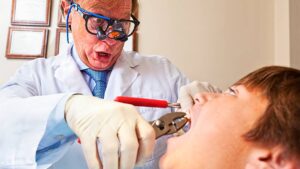Here’s what policymakers must do keep ASX life science companies from going overseas

Pic: sinology / Moment via Getty Images
At first glance, the health and life sciences sector on the ASX appears vibrant. There are several success stories, like Viralytics and Sirtex which were both acquired last year.
There are other companies that have grown from microcaps to large caps such as Clinuvel Pharmaceuticals (ASX:CUV) and Cochlear (ASX:COH).
On the ASX there are dozens more small caps – 169 to be precise.
Rick Holliday-Smith, chairman of Cochlear as well as the ASX, said it was possible for further growth in the sector, but regulators had to do their part.
“Biotech and life sciences has an important part to play but it’s nowhere where we need to be,” he told the Pitt Street Research Life Sciences conference this morning.
“Policy setters don’t seem to realise it, or find it hard to deal with.
“Companies need sufficient access to long-term patient capital – 10-15 years, a supportive regulatory regime, tax incentives, access to the best talent and a [government] objective to build businesses that are global and operate from Australia to the best extent possible.”
One point on which he was specific was research and development spend. Currently the limit that can be claimed as a tax rebate is $100m. But with Cochlear recently surpassing that amount and it scheduled to escalate over the next 10 years, the company may have to do more research overseas.
“If we escalate at the rate we’re going we’ll soon have close to $1.5 billion globally – less will be in Australia,” Holliday-Smith said.
He noted Cochlear paid $338m in salaries and 75 per cent of its tax bill in Australia each year.
Investors need to shift their mindset
Holliday-Smith also said investors had to be more patient and shift their thinking from the ultimate aim being a company plodding along just to sell-out to a big suitor to the goal being a small company growing to become a big company in its own right.
“Foreign buyers tend to buy it out before full value is achieved. We celebrate – but it’s chump change for [buyers],” he said.
“The next three to five years are critical as to whether [the sector] keeps going or not as we don’t have a runway that goes on forever.
“If we don’t help companies they will go overseas. We need to build businesses, not just do clinical trials.”
But he said if companies went big the sky was the limit, noting the few that had continued to grow achieved large valuations.
The largest healthcare stock on the ASX is CSL (ASX:CSL), which has a market cap over $120 billion. The next two are Resmed (ASX:RMD) and Cochlear (ASX:COH), at $31.7 billion and $13.6 billion respectively.
“If you have an Australian company that is world leading, can you get the best valuations? You can. But companies need a global performance and appreciation. The sky is the limit if they have this,” Holliday-Smith said.
Anatara Life Sciences (ASX:ANR) boss Steve Lydeamore told the conference investors had a short-term mentality.
“People want something to happen every quarter and if not they get concerned,” he said.
“Research is good but you need to inform the market of the journey you’re on and show investors you’re walking the talk.
“The word is starting to get out there but it’s not that easy. We don’t have a budget to spend on PR – we do it on research and development.”
The ASX ideal for this vibrant sector
However, Holliday-Smith was not all doom and gloom about the sector. He noted that life sciences pipped the mining sector for people employed (including researchers) and generated $5 billion in export income per year.
He also said he wanted to leave behind a great Australia to his grandchildren and that a vibrant life sciences sector was key to this.
Other speakers also spoke fondly of the ASX as a destination for life sciences. One was Osteopore (ASX:OSX) boss Geoff Pocock. His firm creates 3D printed scaffolds that facilitate bone healing where natural healing may be difficult or impossible.
It listed in September and now sits over 80c – four times its IPO price.
“We’ve been well supported by the capital market – we’ve seen the support the ASX gives the companies that are in this space,” he said.
“I’m still of the view the ASX is the greatest risk capital market in the world, becoming more sophisticated in the health sector and it’s been beneficial for Osteopore.”
Read More:
Clinuvel on top of the world after FDA approval caps off rise of 4000%
At Stockhead we tell it like it is. While Osteopore is a Stockhead advertiser, it did not sponsor this article
UNLOCK INSIGHTS
Discover the untold stories of emerging ASX stocks.
Daily news and expert analysis, it's free to subscribe.
By proceeding, you confirm you understand that we handle personal information in accordance with our Privacy Policy.








